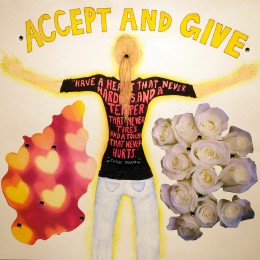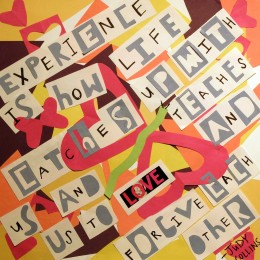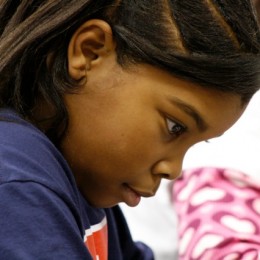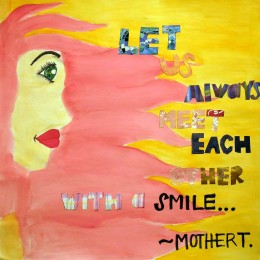From The Kathe Upanishad
In the secret cave of the heart, two are
Seated by life’s fountain. The separate ego
Drinks of the sweet and bitter stuff,
Liking the sweet, disliking the bitter,
While the supreme Self drinks sweet and bitter
Neither liking this nor disliking that.
The ego gropes in darkness, while the Self
Lives in light. So declare the illumined sages,
And the householders who worship
The sacred fire in the name of the Lord.
May we light the fire of Nachiketa
That burns out the ego, and enables us
To pass from fearful fragmentation
To fearless fullness in the changeless Whole.
Know the Self as lord of the chariot,
The body as the chariot itself,
The discriminating intellect as
The charioteer, and the mind as the reins.
The senses, say the wise, are the horses;
Selfish desires are the roads they travel.
When the Self is confused with the body,
Mind, and senses, they point out, he seems
To enjoy pleasure and suffer sorrow.
When a person lacks discrimination
And his mind is undisciplined, his senses
Run hither and thither like wild horses.
But they obey the rein like trained horses
When a person has discrimination
And the mind is one-pointed. Those who lack
Discrimination, with little control
Over their thoughts and far from pure,
Reach not the pure state of immortality
But wander from death to death; while those
Who have discrimination, with a still mind
And a pure heart, reach journey’s end,
Never again to fall into the jaws of death.
With a discriminating intellect
As charioteer, a well-trained mind as reins,
They attain the supreme goal of life
To be united with the Lord of Love.
The senses derive from objects of sense-perception,
Sense-objects from mind, mind from intellect,
And intellect from ego; ego from undifferentiated
Consciousness, and consciousness from Brahman.
Brahman is the first Cause and last refuge.
Brahman, the hidden Self in everyone,
Does not shine forth. He is revealed only
To those who keep their minds one-pointed
On the Lord of Love and thus develop
A superconscious manner of knowing.
Meditation empowers them to go
Deeper and deeper into consciousness,
From the world of words to the world of thought,
Then beyond thoughts to wisdom in the Self.
Get up! Wake up! Seek the guidance of an
Illumined teacher and realize the Self.
Sharp like a razor’s edge is the path,
The sages say, difficult to traverse.
The supreme Self is beyond name and form,
Beyond the senses, inexhaustible,
Without beginning, without end,
Beyond time, space, and causality, eternal,
Immutable. Those who realize the Self
Are forever free from the jaws of death.
The wise, who gain experiential knowledge
Of this timeless tale of Nachiketa
Narrated by Death, attain the glory
Of living in spiritual awareness.
Those who, full of devotion, recite this
Supreme mystery at a spiritual
Gathering, are fit for eternal life.
They are indeed fit for eternal life.
The Katha Upanishad, part 1, canto 3. The Katha begins with the story of Nachiketa, a daring teenager who goes to the King of Death, Yama, to get the secret of life. The rest of the Upanishad gives Yama’s teaching. This translation is by Eknath Easwaran, adapted for meditation from the version in his Dialogue with Death: The Spiritual Psychology of the Katha Upanishad (Petaluma: Nilgiri Press, 1981)
From God Makes The Rivers To Flow, Sacred literature of the world selected by Eknath Easwaran, founder of the Blue Mountain Center of Meditation; third edition 2008, reprinted by permission
of Nilgiri Press, P. O. Box 256, Tomales, Ca 94971, www.easwaran.org.




